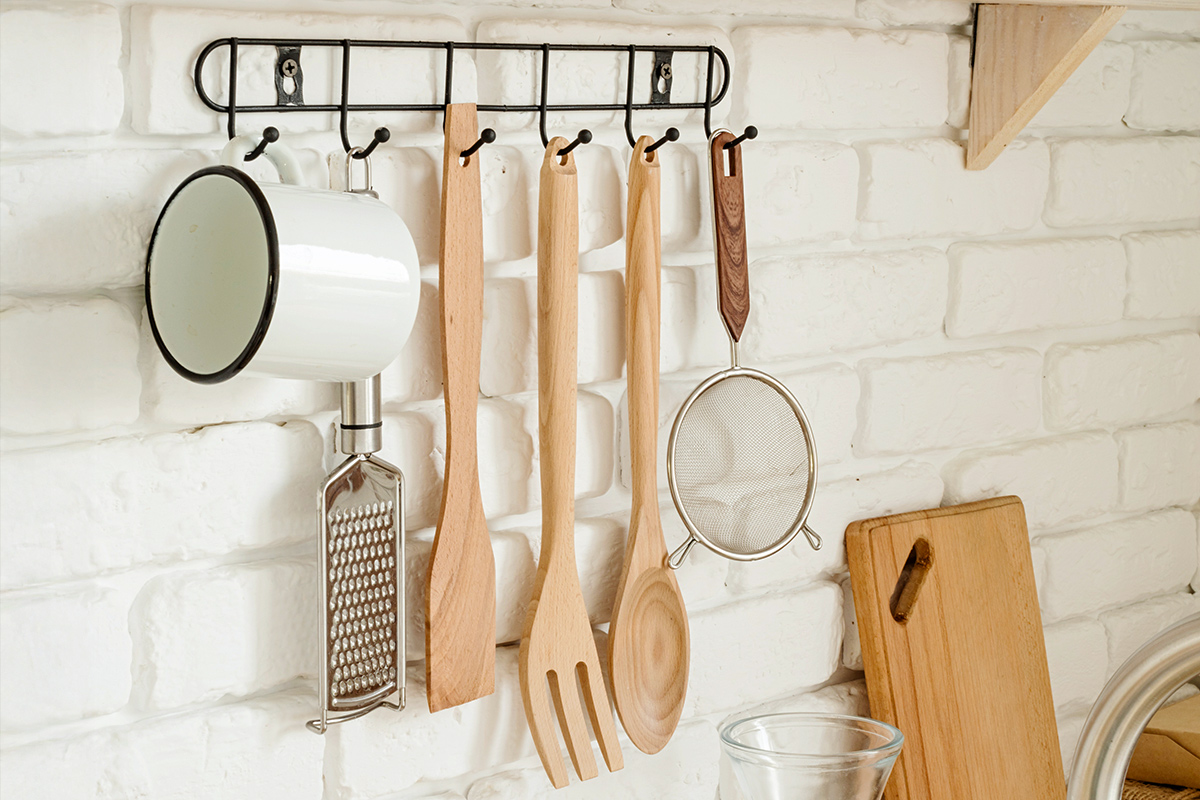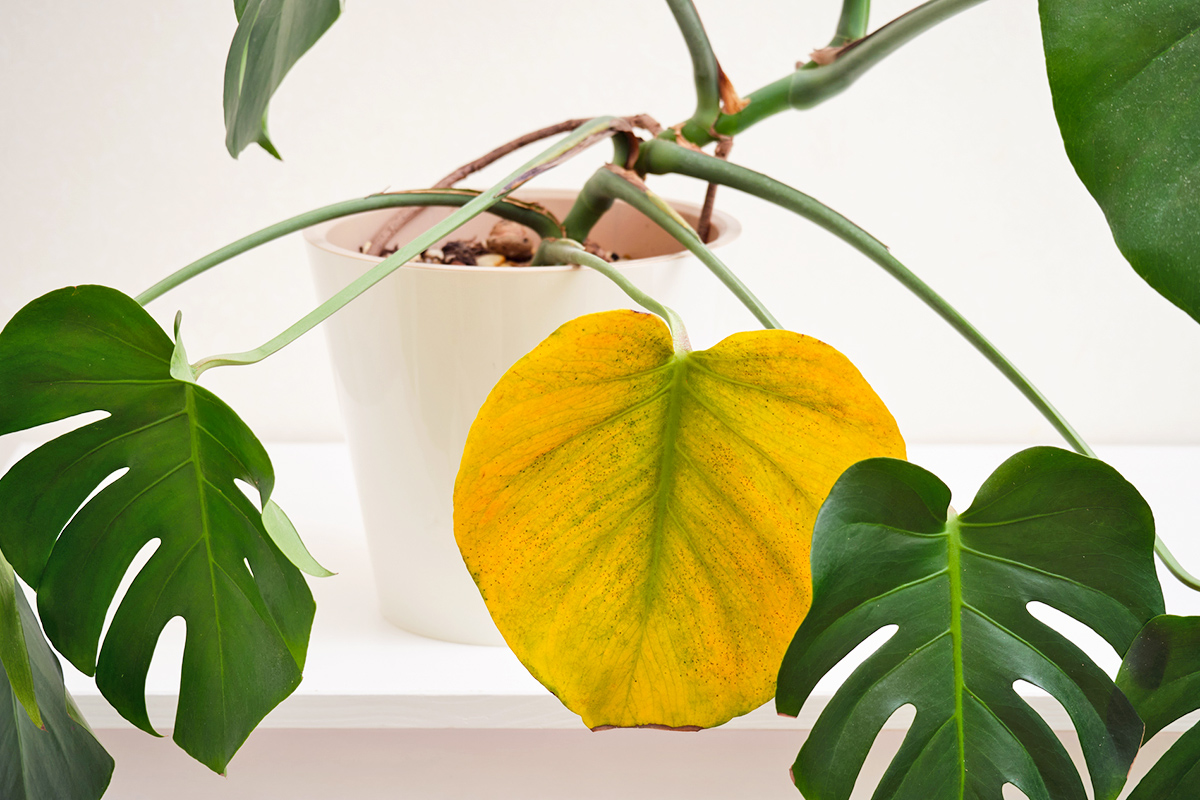I can’t think of an invention that’s done more to change the way we cook and eat than refrigeration. Instead of buying fresh ingredients daily, we can just hit the supermarket every week or two and load our fridges with everything we’ll need. Of course, some foods should never be refrigerated, and there are many…
1. Ketchup
Ketchup is something I’m always surprised to see in the fridge. Who wants cold ketchup on their hot fries or burger? Its acidity level is high enough to prevent microbial growth, and its sugar content is also a preservative. Just keep it out of direct sunlight, and it should be fine.

2. Potatoes
Many fruits and vegetables benefit from being stored in the fridge, but spuds are an exception. In refrigeration, they convert some of their starches to sugars (a natural antifreeze), which messes with their flavor and texture. They need a couple of weeks after coming out of refrigeration before the sugars revert to starches, which drove me crazy when I was preparing hand-cut fries at my restaurants. Chilled potatoes brown too quickly, making the fries darker than desired.
3. Mayonnaise
This one may surprise you if you grew up on stories of people getting sick at picnics from foods containing mayonnaise, but it’s true. Store-bought mayonnaise is acidic enough to keep safely at room temperature. Don’t believe me? According to Hellmann’s (aka Best Foods), the top-selling mayonnaise company in the U.S., its product can be stored at room temperature for up to a month after opening, or two months in the refrigerator.
The problem is actually the foods you mix with the mayo. I buy mine in the big jar and use it to refill a squeeze bottle. I only ever reach into the jar with scrupulously clean utensils, so food never comes in contact with it.
Important note: This only applies to commercial mayonnaise. Your homemade mayonnaise is extremely perishable and requires proper refrigeration.

More from our network
House Outlook is part of Inbox Studio, which publishes content that uplifts, informs, and inspires.
4. Mustard
Mustard, like ketchup, is a condiment with more than enough acidity to keep it food safe. This applies to plain old yellow “ballpark” mustard, the hot English style, Dijon mustard, or grainy deli-style mustard … whatever you’ve got, in other words.
5. Soy Sauce
I always have a bottle of soy sauce sitting on a shelf near my kitchen work area, and it never goes into the fridge. Its high salt content keeps it food safe, and I use it frequently enough that it never goes bad. (Soy sauce adds a great umami kick to anything you cook.) The same goes for my bottle of Worcestershire sauce that sits beside it.

6. Tomatoes
There are a lot of fruits that only ripen properly at room temperature, and tomatoes are one of them. (We eat them as a vegetable, but they’re technically fruit.) If you refrigerate tomatoes before they’re adequately ripened, their flavor is stunted and their texture suffers. You can refrigerate them once they’re fully ripe to prolong their freshness, but they’ll taste better if you let them come to room temperature before you eat them.


7. Hot Sauce
Hot sauce is another food that’s acidic enough to store sans refrigeration. It’ll last for months at room temperature, and its flavors will remain full and bold. After about six months, though, the hot sauce will finally begin to lose its potency. If you only bring out that bottle of Tabasco a couple of times a year for bloody marys, it’s probably best to refrigerate it.

8. Avocados
Scroll up a few lines to the section about tomatoes — that applies to avocados as well. They simply won’t ripen in the refrigerator, full stop. So leave them on the counter until they’re ripe, and then use them quickly. If you have more than you’ll use in a day or so, at that point, it’s OK to refrigerate the rest to keep them from progressing to the “eww, ick” stage.
9. Fresh Basil
Most fresh herbs will keep for a long time when stored in the fridge, but basil is an exception. Simply put it in a glass of water and place it on the countertop. (Trust me on this — I grow basil in my garden every year.) That’s why good supermarkets leave the herb out, often near the tomatoes, rather than put it in a refrigerated case.

10. Stone Fruit
Stone fruits, such as peaches, plums, and nectarines, fall into the same camp as avocados and tomatoes because they’ll never fully ripen if you pop them in the fridge. Instead, they’ll develop a mealy texture, which is not what you want at all. As with tomatoes and avocados, though, if you’ve cut into one and won’t finish it, it’s OK to refrigerate the remainder to prevent it from spoiling.
11. Nuts
I’ve personally gone both ways on this, because keeping nuts refrigerated does stop their natural oils from going rancid. Cooler temperatures mess with their flavor and texture, though, so I’ve gone back to buying only what I’ll use in a reasonable time frame and storing them in my pantry. An exception is the pine nuts I use to make pesto, which I buy in bulk and keep vacuum-sealed in my freezer between summers.

12. Chocolate
If you spring for some really good chocolate for baking or an occasional treat, you may be tempted to keep it in the fridge. Don’t do that. The cocoa butter in chocolate misbehaves at cold temperatures, giving it a disappointingly crumbly texture and powdery surface over time. The latter issue is known as “bloom,” and it’s just the cocoa butter coming to the surface, so don’t throw away your chocolate if you see it. It’s perfectly fine to eat and will melt away if you bake with it.
13. Coffee
Like chocolate, its frequent partner, coffee tastes best when not frozen or refrigerated. The chill dampens the volatile oils that give coffee its robust flavor, and going in and out of the fridge can cause condensation on the beans or ground coffee (especially in humid climates like mine). Condensation can lead to spoilage, which is pretty ironic in this context.

14. Apples
I live in apple-growing country, and my grandkids and I eat a lot of apples. OK, they eat the first few bites of a lot of apples, but the point remains the same. Apples are a naturally long-keeping fruit, and refrigeration can mute their flavors. Don’t do it unless the apples are cut up or getting past their prime.
15. Nutella and Peanut Butter
These spreads are also beloved by my grandkids, and both are perfectly fine (better, even) when they aren’t refrigerated. Mainstream peanut butter brands are packed with preservatives and will last months without issue. Natural peanut butter only needs refrigeration if you don’t eat it often. Chocolate and hazelnut Nutella, and its competitors, develop a weird texture if they’re refrigerated.

16. Honey
It would never occur to me to refrigerate honey, so I was quite surprised to learn that some people do. Sugar is a preservative, and honey is mostly sugar. It will last for centuries when sealed to keep out moisture, so relax and leave it in the pantry. Refrigeration also makes honey crystallize faster, making it a pain to get out of the bottle.
17. Cucumbers
For a lot of people I know, cukes go right from the shopping bag to the crisper drawer. That’s a bad idea because the cold, dry air of the refrigerator will make the cucumbers deteriorate pretty quickly. I’ve regularly kept my homegrown cukes on the counter for a couple of weeks without problems (sometimes longer), and I only refrigerate them once I cut into them.

18. Citrus Fruits
Citrus fruits are exceptionally versatile, making them a staple in many kitchens. Oranges, lemons, limes, and grapefruit all keep really well at room temperature, and refrigeration tends to suck the moisture out of them pretty quickly. Leave the fruits out, perhaps in a hanging basket or concrete bowl, and only refrigerate them after they’re cut.
19. Fresh Peppers
We’ll finish with fresh peppers, another fruit masquerading as a vegetable. Like many others on this list, they will continue to ripen if you leave them on the counter, and that’s when their flavor and texture are best. This is true for both sweet and hot peppers. I refrigerate mine after I cut into them, or if I’m looking to preserve hot peppers’ “green” flavor and don’t want them to ripen and sweeten.



















